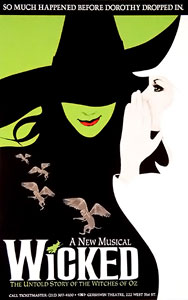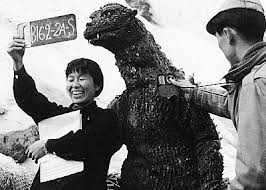Speculative Politics 4: Rebuttal By Marc Schooley
That which seems the height of absurdity in one generation often becomes the height of wisdom in the next.
â John Stuart Mill
Itâs quaint rhetoric that Kerry likens me to a Hobbit; however, I wholeheartedly accept. For the Hobbits are the children of faith, tending the fields, minding their own business, trusting in the great power that rules the world: And to aspire to live quietly, and to mind your own affairs, and to work with your hands, as we instructed you, so that you may walk properly before outsiders and be dependent on no one. Yet when evil arises, it is Frodo who is heroic, assuming the role thrust upon him, willing to sacrifice all to the ends of Middle Earth and the pits of Mount Doom.
 Perhaps Kerry fancies himself an Aragorn, but this cannot be. For Aragorn is the reticent king, exiled far from the machinations of men, disentangled from the affairs of the world. Like Frodo, Aragorn assumes the heroic mantle, but only when the role is thrust upon him. Rather, Kerry is Boromir, actively pursuing the ring of power, that by it his enemies may be crushed. We all know how well that worked. Kerryâs metaphor is a very good one. đ After all, who curses the name of Christ because of the Amish? Falwell, Robertson, Jackson, and, as much as it pains me, Calvin & Servetus â well, politics just has that special touch, doesnât it?
Perhaps Kerry fancies himself an Aragorn, but this cannot be. For Aragorn is the reticent king, exiled far from the machinations of men, disentangled from the affairs of the world. Like Frodo, Aragorn assumes the heroic mantle, but only when the role is thrust upon him. Rather, Kerry is Boromir, actively pursuing the ring of power, that by it his enemies may be crushed. We all know how well that worked. Kerryâs metaphor is a very good one. đ After all, who curses the name of Christ because of the Amish? Falwell, Robertson, Jackson, and, as much as it pains me, Calvin & Servetus â well, politics just has that special touch, doesnât it?
In my first installment, I set forth two propositions: America is not a Christian Nation and the church should not be involved in politics. The latter was positively agreed to; the former was not disputed1.
Kerryâs use of the analogia fidei is admirable; however, to utilize this hermeneutic principle properly, he ought discuss like and similar passages first â 1 Pet 2: 13-20, for instance â before proceeding to passages that tangentially or abstractly, if at all, apply to Romans 13.
Ineffective are his appeals to publicans and other political officials. Arguments from silence are sound only if the arguer demonstrates reasons to assume what was not communicated was intended. There are no such reasons offered for the texts mentioned. Yet, why doesnât Kerry reference texts and data that do suggest such problems with politicians and politics, such as John 18:36, the political involvement of the Sanhedrin, that the Jews desired a political Messiah, the howling of the crowd for the political dissident Barabbas, that friendship with the world is enmity with God, the ruler of the kingdom of the air and principalities and powers of Ephesians 2 and 6, the Israelitesâ rejection of God in favor of a king, and Genesis 6:2, among many others?2
Historical Rebuttal Rebutted
Iâm glad Kerry has invoked history. The Nazis were voted into power, and any Christian that voted for them shares somewhat in their sin. Why we think similar atrocities canât happen here â when the Bible tells us what human nature is like, what the powers and principalities of this world are like, and for the simple fact that our own American history is riddled with atrocities equal to or exceeding Nazi Germany â is beyond me.
Kerry claims itâs a good thing our founders didnât share my sentiments. I disagree; my sentiments are not to exterminate a continentâs worth of indigenous peoples and to institute slavery. And this notion of the modern American Christian crusades? Should we have destroyed the Russians, who killed millions of their citizens? The Chinese, who killed forty million of theirs? Pol Pot? Leopold the II, Ismail Enver? The list goes on and on and on and on, and even occurs today in places like Rwanda and Darfur, not to mention the ongoing, ubiquitous stain of modern slavery. I return the question to Kerry twofold: are we supposed to attack the entire world as a holy Christian army, and isnât it clear not only that the politics of the world fail consistently, but that theyâre a bloody, dirty business the church, and Christians, should not stain themselves with?
I argue, conversely, that God âsets up kings and deposes themâ (Dan. 2:21) and that âBeloved, never avenge yourselves, but leave it to the wrath of God, for it is written, âVengeance is mine, I will repay, says the Lordââ (Rom 12:19).
 With regard to Sascha König, it seems to me that Sascha follows the scriptural model: he is not political, but strives to act godly in the arena and position in which God deposited him. This is the biblical model: Joseph, Moses (after his failed political action â see Acts 7:25), the Judges, David (Hobbiting away in the fields), Daniel, Esther, Jesus âŠ
With regard to Sascha König, it seems to me that Sascha follows the scriptural model: he is not political, but strives to act godly in the arena and position in which God deposited him. This is the biblical model: Joseph, Moses (after his failed political action â see Acts 7:25), the Judges, David (Hobbiting away in the fields), Daniel, Esther, Jesus âŠ
Disguised in Kerryâs line of attack appears to be a principle that claims Christians who vote are better American citizens than those who do not. I do not grant this as remotely true, and I would ask the voting advocate to provide solid, positive reasons for their pro-vote stance with regard to the following premise:
If a Christian lends her voice and support to a candidate and a political party, she is complicit in their platform and actions once elected, has attached the name of Christ to their actions, and is complicit in any unintended consequences. If you deny this premise, then quit telling me youâre complicit through your vote when something good happens! As a practical illustration, just think how fast the bumper stickers come off once an elected candidate has proven himself a buffoon. đ
Given this, itâs easy to see how weâre culpable â somewhat â for our vote, and how we may drag the name of Christ through the political mud.3
 The voter is party to the unjust foreign war and the carnage that ensues: bombing of civilians, torture, rape, starvation, privation, etc. Biblical principle abused: love thy neighbor; love thy enemy.
The voter is party to the unjust foreign war and the carnage that ensues: bombing of civilians, torture, rape, starvation, privation, etc. Biblical principle abused: love thy neighbor; love thy enemy.- The voter is party to discrimination against the immigrant. âWhen an alien lives with you in your land, do not mistreat him. The alien living with you must be treated as one of your native-born. Love him as yourself, for you were aliens in Egypt. I am the Lord your God.â (Lev. 19: 33-34)
- The voter is party to complaints against taxes. If you owe taxes, pay taxes (Rom 13:7) Render unto Caesar what is Caesarâs.
- The voter is party to the installation of foreign dictators and the empowerment of evil men, many of whom commit heinous atrocities, e.g. Saddam Hussein, Hosni Mubarak, Osama Bin Laden, the Shah of Iran, Taliban, et al. âFor dominion belongs to the LORD and he rules over the nationsâ (Psalm 22:28).
- The voter is party to spending more than we take in and running up huge deficits and debt. âIn the house of the wise are stores of choice food and oil, but a foolish man devours all he hasâ (Prov. 21:20).
- The voter is party to the ruination of the environment. âThe Lord God took the man and put him in the Garden of Eden to work it and take care of itâ (Gen 2:15).
- Ironically, a vote for a Republican is not good citizenry, as their passage of the Patriot Act, FISA amendments, and support for the NDAA removes certain rights American citizens are pledged to uphold. Time to speak up, Kerry Bonheoffer!
- The voter is party to the oppression of Palestinians behind fences and in camps, many of whom are our Christian brethren, particularly when the voter is involved with certain Christian political ministries. Along with this, the idea that we would entice Jewish people to move en masse to Israel just so they can be slaughtered in the coming apocalypse is reprehensible politics, and theology, for that matter.
- The voter is party to an inherent tribalism and animosity against the other half of the country, most notably displayed in offensive phrases such as Take our country back! âIf it is possible, as far as it depends on you, live at peace with everyoneâ (Rom 12:18).
- The voter is party to a failed war on drugs that has cost the lives of thousands of people, empowered drug lords and cartels, and resulted in the unjust sentences of hundreds of thousands of men.
- The voter is party to the maintenance of the rich and powerful, Wall Street, corporations, special interests, and the military-industrial-congressional complex, rather than favoring the poor and disenfranchised. âIf you show special attention to the man wearing fine clothes and say, âHereâs a good seat for you,â but say to the poor man, âYou stand thereâ or âSit on the floor by my feet,â have you not discriminated among yourselves and become judges with evil thoughts?â (James 2: 3-4)
- The voter is susceptible to repeating party talking points that are half-truths.4
Kerry quotes Mill, but Iâd adjust it a bit: âBad men need nothing more to compass their ends than that good men should look on and do nothing but vote.â Certainly, we can do better as Christians, and I argue that the biblical model does just that. Each man, woman, and child should not rely on or entangle themselves fruitlessly and with bitter consequences (intended and unintended) in the political process, but act pursuant to the dictates of Godâs Word in the circumstances in which God has deposited them. Far from being against action as Kerry suggests, my position says the Christian ought to be salt and light; I just claim, based on Scripture and the evidence, that politics are not saltshakers and flashlights.
I am pleased that Kerry is unsettled by my words. At worst, what I say here can just encourage Christians take a hard look at politics, as we should do with every sphere of life. At best, however, what Iâm talking about is a freedom found in Christ while releasing the power and privilege of this world, and in the Author of our Faith, who is indeed sovereign over the affairs of mankind, despite our votes.
By the way, Paul indeed appealed to his rights as a Roman citizen, but isnât Acts 26:32 interesting?
Kerry, youâre my good Christian brother, and I thank God for youâŠplease remember we agree on so much more than this.
MS
Soli Deo Gloria
- Kerry reported that I used the backdrop of human history for this, but every event I listed was an American event. ↩
- Note again that I am merely expressing my view of Scripture. The readerâs view on this is between her and the Holy Spirit. I thank Kerry for his spirit and for that of the commenters and return the same. ↩
- Under the assumption that the audience here is largely center-right, Iâll confine my examples to Republican issues. I suspect most people (Kerry indeed mentioned it) here will argue that a vote for the Democrats is a vote for abortion, among other things, and therefore wrong. The unsettling thing â I hope I can show â is that turned around, itâs just as problematic. ↩
- Since I work on contract to NASA, I personally received the announcement Kerry alluded to. The current administration has thus far fostered healthy space exploration, including human, robotic, and telescopic and has taken positive steps to promote it. No worries, Sci-Fi writers! đ ↩




































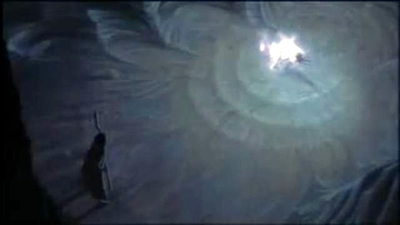 Scripture constantly compares Godâs glory to light. John 1 says Christ was the light, evoking Godâs first command in Genesis 1, and adds âwe have seen His gloryâ (John 1:14). Look for photos online relating to âGodâs gloryâ; youâll find most reflect this comparison: pictures of sunrises, sunshine sparkling on the water.
Scripture constantly compares Godâs glory to light. John 1 says Christ was the light, evoking Godâs first command in Genesis 1, and adds âwe have seen His gloryâ (John 1:14). Look for photos online relating to âGodâs gloryâ; youâll find most reflect this comparison: pictures of sunrises, sunshine sparkling on the water. 
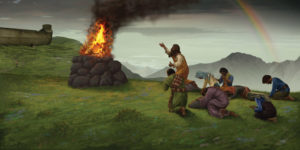
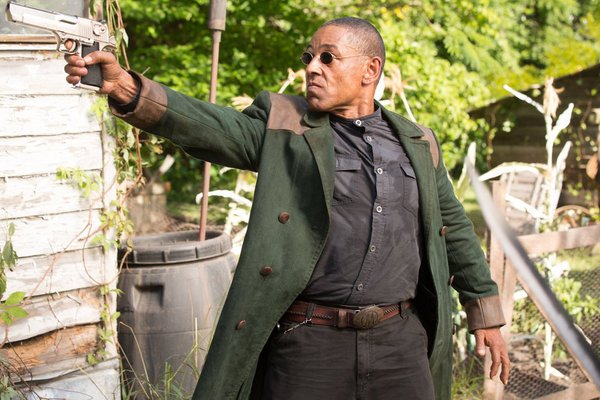


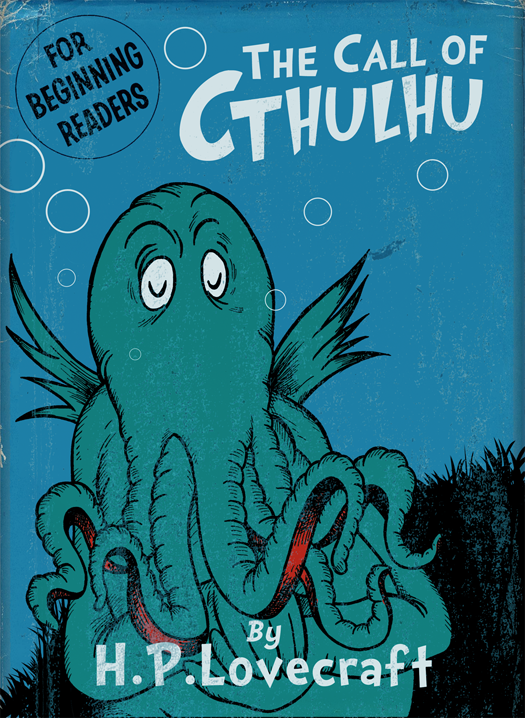
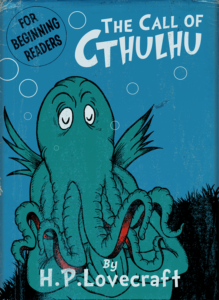
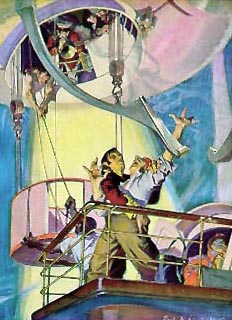

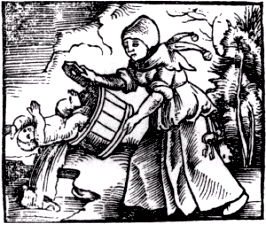
 Taking that verse at face value, one might assume that a Christian could forgo all pursuit of anything, entirely. That he might forgo work, forgo preparing meals, forgo shopping or sewing ⊠in fact, he might as well pick a spot on the ground somewhere and wait for God to drop food and apparel from the sky. No worries, no responsibilities. Have faith! God is taking care of it!
Taking that verse at face value, one might assume that a Christian could forgo all pursuit of anything, entirely. That he might forgo work, forgo preparing meals, forgo shopping or sewing ⊠in fact, he might as well pick a spot on the ground somewhere and wait for God to drop food and apparel from the sky. No worries, no responsibilities. Have faith! God is taking care of it!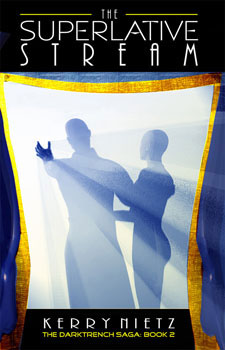
 What amazes me most, though, is that someone who wrote a brilliant novel about the Nazis (
What amazes me most, though, is that someone who wrote a brilliant novel about the Nazis (
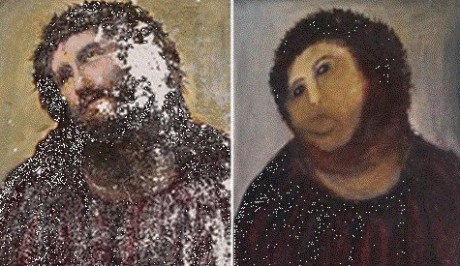 Now for a question to tie these all together (in lieu of a guest author who needed to re-schedule). What makes novels mediocre? What makes reading them a duty rather than a delight â or even makes you put down the book and refuse to read further?
Now for a question to tie these all together (in lieu of a guest author who needed to re-schedule). What makes novels mediocre? What makes reading them a duty rather than a delight â or even makes you put down the book and refuse to read further? This sinful decline from God-created potential to mediocre expectations in turn makes Christian novels mediocre in many ways. Here I am limiting my observations to Christian fiction, and also flagrantly generalizing beyond the particular book I have been reading:
This sinful decline from God-created potential to mediocre expectations in turn makes Christian novels mediocre in many ways. Here I am limiting my observations to Christian fiction, and also flagrantly generalizing beyond the particular book I have been reading:
 Letâs review
Letâs review 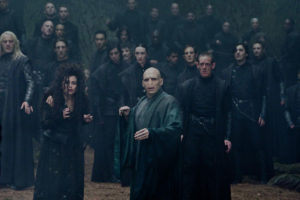 Where to begin?
Where to begin?

 You can guess the reasons why.
You can guess the reasons why.